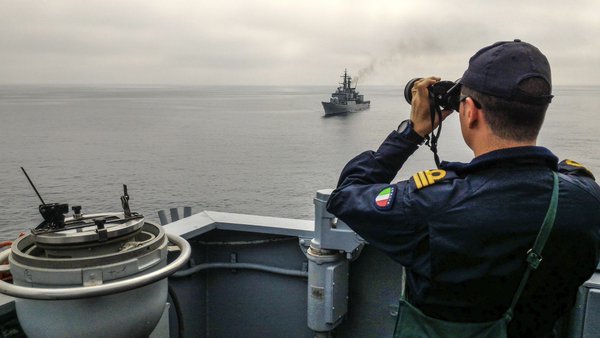Europeans not very enthusiastic about a Eusec mission in Somalia
(BRUSSELS2 / In Gothenburg) The request from Javier Solana to develop an ESDP mission of assistance and reform of the security forces in Somalia did not enthuse the defense ministers who met in Gothenburg on Tuesday.
Everyone is well aware around the Ministers' table that it is necessary to stabilize this "country" and prevent it from falling into total anarchy.« We are all concerned” summarized Swedish Defense Minister Sten Tolgfors, who chaired the meeting.
“We need to have an adequate level of commitment in the region. Operation Atalanta is a success. But acting at sea does not mean that the problem (of piracy) disappears because the source of the problem is on land”. But when it comes to putting in resources and arriving at a common position, that's another story...
The 27 Foreign Ministers had certainly agreed, during their meeting in July, to explore the possible options (*). Their Defense counterparts don't seem quite so determined. “It is an extremely complicated question which requires finding cooperation. This discussion was a starting point. This is not the conclusion. We will have to work in the weeks and months that follow to come back soon with solutions” admitted Sten Tolgfors, the Swedish Minister of Defence, during the final press conference.
- (*) The EU "will explore the possibility of additional EU support to the security sector, including through support to the UN-led assessment process and TFG priorities and commitments as well as through the training of security forces. The Council agrees that support in the security sector should be well coordinated, notably with the AU, the UN and other relevant EU partners, in particular the US. It should support a Somali national security strategy, committed to the rule of law, respect for human rights and
gender".
The French example. The training of 500 members of the security forces, started this summer in Djibouti by the French, was cited as an example. 150 soldiers have already been trained and the training of 350 others will start 🇧🇷 The French would now like the Europeans to take over and supplement them in this effort. But few voices concretely joined this demand. Germany (also present in Djibouti with a hundred men as part of Operation Enduring Freedom), Luxembourg and Cyprus have offered their help and contribution. Spain also supported this position without being too specific on the means.
- (**) Udo basic practical military training. The training given lasts three weeks. « This is not a commando type formation - a high-ranking soldier told me. " In a few weeks, that's impossible. And then it is not a question of training elite soldiers without knowing what they become ". It is therefore more a matter of training, of the accelerated conscription type: I
take future soldiers and bring them quickly to an operational capacity, learn to obey, react as a group…” The conscripts are chosen by the Somali authorities. But the French filter the applications to avoid certain elements - possible fundamentalists but also minors. Several have thus had to be expelled because they appeared to be minors. " There is no question for the EU to train child soldiers ».
The other ministers around the table remained wait-and-see, not to say skeptical. Nobody was really opposed to the continuation of the discussions either. As summed up the Belgian Minister of Defence, Pieter De Crem, whom I questioned on this question: this suggestion is interesting. But there are many questions that arise. We not only have budget constraints. But we also have to deal with a very specific situation. If you commit, you have to know when the mission will be finished; how are we going to pull out. And what follows. “And to add:” We cannot be alone. It is also a problem that mainly concerns Africans. And you have to involve them. As it is necessary to work with other partners like the United States or NATO”. For the Spanish Defense Minister, Carme Chacon, care must be taken to “ not have a boomerang effect: qthat these agents, trained by European forces, end up becoming pirates when they leave the army».
Comments
Are these reluctances a sign of failure? Not quite sure. With the European Union, you never know. Audacity is sometimes at the bend of the path of reluctance. "We haven't been idle - justifies a relative of Solana - the decision to explore the avenues came at the end of July, the first "test" training started in August, exploratory missions started in August and September". And its another ESDP player reminded me, "this sounds like a reminder of the first discussions that preceded the launch of the anti-piracy operation". Indeed when we look back on the first discussions, the launch of Atalanta has experienced several trials and its success was not assured.
A not quite ordinary mission. It's not really an operation"loan"advice and assistance in security reform but straightforwardly to train operational troops from a country plagued by instability and where radical Islamists are very present. In fact, the EU would have an advisory mission, of the type that States usually conduct in bilateral cooperation (France in Africa, Spain in Latin America) or of the type that NATO and the United States conduct... in Afghanistan.
The track of a joint AU-EU mission. This is why one of the most serious avenues envisaged could be a joint mission of the African Union and the European Union. The EU contributing its technical assistance, expertise and financial resources to an AU advisory mission. Which would probably be more acceptable to several participants around the table.


Comments closed.